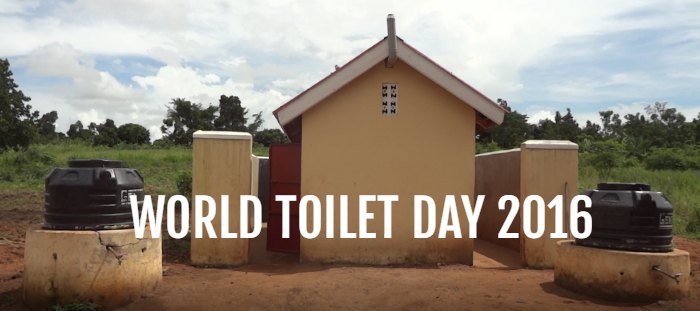
World Toilet Day 2016
We never really get a chance to talk or think about how important toilets are to our everyday lives. However, what we consider an accessible necessity in our homes, toilets are largely a scarcity in so many developing countries, with around 1 in 3 of the world population – 2.3 billion people – without access to improved sanitation facilities (WHO 2015).
World Toilet Day on 19th November gets people talking about toilets, with this year’s theme emphasizing the overall impact of what functioning toilets can do for the entire community. A good quality toilet is much more than a toilet, it is a pathway to drastically improve people’s health! Access to toilets leads to improvements in school attendance and achievement, it boots productivity and attendance at work, it improves local attitudes towards health and hygiene and combats stigma around gender related hygiene issues.
Without any access to a toilet, people are forced to defecate in open areas, contaminating the local area and making defecation areas uninhabitable and unclean. The contamination effects all areas of the environment such as water sources and the local agriculture. With communities drinking unclean water, diseases spread quickly and cause problems like excessive diarrhoea and vomiting. Water borne diseases account to more deaths each year than malaria and aids combined; yet toilets are proven to dramatically reduce contamination and lower the risk of suffering from such illness.
Improving hygiene and sanitation remains one of the most prioritized topics in the Sustainable Development Goals set by the UN in 2015. Although big changes are being made in improving global sanitation, progress is slow, especially in communities that are difficult to access and are often overlooked by Government funding and resources. Proper forms of sanitation and clean drinking water are two ways that are proven to reduce disease, increase the safety of women and change lives. Drop4Drop works hard to implement sanitation and hygiene programmes with every clean water project, and encourage people to talk about the need for such change. Knowledge about the risks of open defecation and hygiene training are crucial to sustainable improvements.
A toilet is not just a toilet, it means improved health, safety and education, and that really is something to talk about.